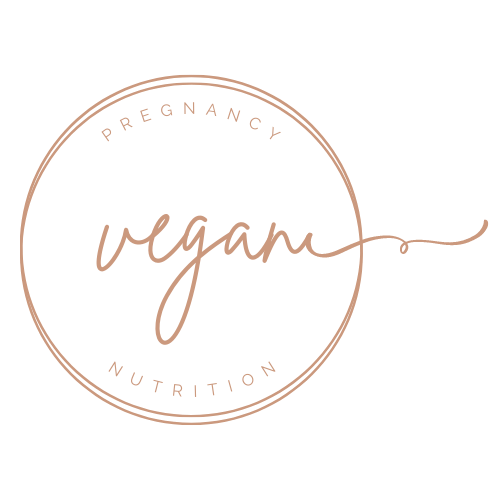5 unique vegan protein foods to support a healthy pregnancy
written by Clarissa Hauber, edited by Maya Bach, MPH, RDN
As a vegan mom-to-be, it’s easy to be overwhelmed with the number of nutritional guidelines during pregnancy.
So. Much. Info. 🤯
And it can become even more stressful if you find that doctors are questioning whether, as a vegan, you’ll be able to meet your protein needs to ensure a healthy pregnancy.
The truth is that vegan mamas can meet their protein requirements just as easily as non-vegans!
While most people attribute high protein foods to meat and poultry, you can find plenty of protein in many different plants and seeds. Below is a list of plant-based foods that can help you boost your protein intake during pregnancy for both vegans and non-vegans alike!
1. Tofu
Also referred to as bean curd, tofu is derived from soybeans and makes an excellent protein source. One cup of tofu is equal to 20 grams of protein! Tofu comes in a couple of different varieties, but it’s best to opt for extra firm tofu for more protein per serving. And as a bonus, tofu is rich in choline which is essential for your baby’s development. Consider adding tofu to your smoothies or soups for a simple boost, or bake in the oven with your favorite seasonings to add to your dinner or lunch!
2. Nutritional yeast
Nutritional yeast refers to deactivated yeast and is commonly sold in the form of granules or flakes. It’s made popular by vegans for its cheesy taste and abundance of protein. Two tablespoons of nutritional yeast boast 8 grams of protein! It is also rich in B12, which is essential for every vegan mama to support themself and their baby’s body. Due to its resemblance to cheese, nutritional yeast is excellent to add to pizza, pasta, and even popcorn.
3. Flax milk
Flax milk, derived from the flaxseed plant, is an excellent protein-full milk alternative for anyone who is allergic or sensitive to soy milk. You can use it as you would any dairy-free milk. It can be an ingredient in baked goods, such as protein oatmeal muffins or banana bread, added to cereal, or used to make overnight oats or chia pods. Aside from having 8 grams of protein per cup, flax milk is also an excellent source of vitamin D and calcium, both of which are essential for developing your baby’s nervous system and bones. Pro tip: Use flax milk to make a creamy cauliflower soup that’s high in protein!
4. Hemp seeds
Hemp seeds are seeds from the hemp plant - they are the same species of plant that marijuana comes from, but they don’t have any THC, so they do not carry any of the safety risks or mind-altering effects of cannabis. Hemp seeds are not only safe for pregnancy, they’re an excellent source of healthy fats and protein. They have the highest protein of all seeds – just two tablespoons of hemp seeds provide 7 grams of protein! In addition, they are a wonderful source of iron to support your increased iron needs during pregnancy. With a neutral taste, you can add them to both sweet and savory dishes. Try mixing the seeds into smoothies, oatmeal, baked goods, or pasta!
5. Pea protein powder
A minimally processed pea protein powder can be a great way to boost protein intake. Especially good if you struggle with intermittent nausea, it is easily digestible and doesn’t have a strong flavor. One scoop of protein powder will provide you with ~20 grams of protein. You can add it to nearly anything from pancakes to smoothies to no-bake protein bars. Consider chocolate or vanilla pea protein powder if you are in the mood for something sweeter. Pro tip: avoid any powders with added herbal extracts to ensure the product is safe for pregnancy!
“What about meatless alternatives?”
These can be pea protein-based or soy-based and vary in terms of nutritional value. Some can be excellent sources of protein while others are pretty low. Generally, aim for ~10 grams of protein per serving and watch how much sodium is added. Some of these products, while they may be cholesterol-free, can be extremely salt-heavy and offer little in terms of protein. They can be a great way to satisfy a craving!
Bottom line:
If you’re worried about protein intake as a vegan mama-to-be, remember that you can quickly meet your protein needs, mainly by implementing some of the foods above into your diet. Try different protein sources and see what works for you. And if you still worry you are not meeting your needs, schedule an appointment with a dietitian. Protein is an important nutrient for both you and baby!
Grow a healthy baby as a vegan mom-to-be!
Join like-minded women inside the Vegan Pregnancy Collective to get the tools you need so you can stop worrying and wasting time Googling all things vegan pregnancy!







